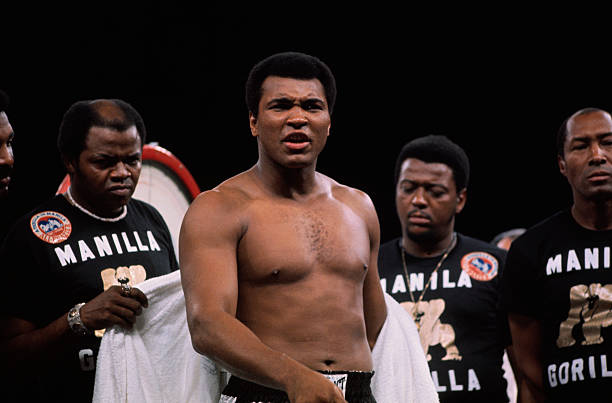The legacy of boxing legend Muhammad Ali
The history of boxing cannot pass by without mention the great Muhammad Ali as he has done incredibly well to paint his name on the great wall of sport.
First of all, Muhammad Ali wasn’t his original name as he had the name Cassius Marcellus Clay Jr. and was born on January 17, 1942, in Louisville, Kentucky.
Like we said earlier about Ali, he created a name for himself in the world of sport and he was known as “The Greatest,” in the world of boxing
Ali was introduced to boxing by a police officer who is also a boxing coach in a place where he was born and he never disappointed.
The talented young man made his debut in an amateur boxing fight in 1954, where his talent paved way for him, he recorded 100 wins and only lost five times.
Ali professional career started years after, on October 29, 1960, recording a win over Tunney Hunsaker.
In 1963 Ali was a top contender for Sonny Liston’s heavyweight title in and to the surprised of everyone, he defeated Liston, fortifying his place in boxing history.
Ali converted to Islam and name change from Cassius Clay to Muhammad Ali. As a member Islam, Ali became an advocate for civil rights and social justice. Ali refused to be recruited into the Vietnam War, which made him lose his boxing titles and also banned from the ring for 3 years.
He returned back to the ring in 1970 and continued the success story and defeated Joe Frazier, George Foreman, and Leon Spinks as he showed his ability to reclaim back the titles he once lost.
Despite his success, Ali’s career and health suffered from the physical toll of boxing. He was diagnosed with Parkinson’s disease in 1984. Although his public appearances became less frequent, he continued to inspire through his charitable work and advocacy. His battle with the disease highlighted his resilience and courage, traits that defined his life both in and out of the ring.
Financially, Ali’s journey was challenging. By 1978, his fight earnings totaled nearly $60 million, but by 1980, his net worth had dropped to around $3.5 million. This decline was due to high taxes, management fees, and significant spending on family, charity, and religious causes.
However, Ali’s financial situation improved years later years. He sold his name and image rights for the sum of $50 million in 2006.
Ali indeed was a power house on and off the ring as his fight for racial equality and social justice caused strong movements.
His refusal to be drafted and opposition to the Vietnam War were early signs of the broader protests and resistance of the 1960s and 1970s. Ali’s charismatic personality and ability to transcend sports made him a global ambassador for peace and humanitarian efforts.
Follow us @Sportscliffs on Twitter and Instagram and also like our facebook page


